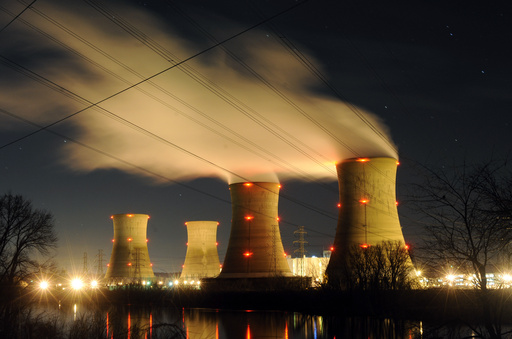
Nuclear power is experiencing a revival as the need for energy and cleaner sources heightens, especially in light of climate change. This resurgence is largely fueled by the rising energy demands from the technology sector, particularly due to the expansion of data centers and advancements in artificial intelligence.
As countries aim to reduce greenhouse gas emissions, they are reassessing the potential of nuclear energy, a source that faced significant skepticism not long ago due to safety concerns. According to forecasts by McKinsey, the U.S. market for data centers is expected to grow dramatically, with energy demand projected to more than triple to 80 gigawatts by the year 2030.
Constellation Energy has announced plans to revive the Three Mile Island facility in Pennsylvania through a partnership with Microsoft. In addition, Oracle intends to harness innovative small modular nuclear reactors to power its data centers, while Google is investing in nuclear energy derived from small reactors under development by Kairos Power. Earlier this year, Amazon acquired a data center powered by nuclear energy in Pennsylvania and is further investing in small nuclear reactor technologies.
A report from McKinsey states, “The power sector is rapidly becoming a protagonist in the AI story,” highlighting that reliable access to energy is crucial for the development of new data centers. With the dual pressures of meeting rising energy demands and achieving net-zero carbon emissions, expectations surrounding nuclear energy are rising sharply. Currently, nuclear power accounts for approximately 20% of electricity generation in the U.S., and projections by the International Atomic Energy Agency suggest that nuclear capacity in North America could nearly triple by 2050.
The U.S. government is backing nuclear power as a viable option to achieve cleaner energy and reduce carbon emissions. For instance, Georgia’s Vogtle nuclear power plant has recently brought online two new reactors, showcasing this support.
Consequently, the anticipated increase in energy demand has made utilities operating nuclear plants attractive partners for large data companies seeking energy solutions. Notably, Three Mile Island, which famously experienced the worst commercial nuclear accident in U.S. history in 1979, may see its Unit 1 reactor reactivated through the agreement between Constellation and Microsoft. This reactor continued to operate until 2019.
Daniel L. Eggers, Constellation’s CFO, highlighted the agreement during a call with analysts, stating, “This deal recognizes the critical role that nuclear has in providing clean energy and supporting reliability.”
Some states maintain bans on nuclear energy expansion, but in recent years, there has been a significant push to lift those restrictions. States like Wisconsin, Kentucky, Montana, and West Virginia have reopened the possibility for new reactor constructions, while others, such as New York, enforce limitations based on reactor size and location.
The renewed interest in nuclear energy is also benefiting businesses involved in nuclear technology and uranium extraction. NuScale Power has seen a dramatic increase in its stock value, more than quintupled this year alone after an additional rise of 40% in 2023. The company specializes in small modular reactors that take up less space than conventional plants. Analysts on Wall Street anticipate substantial revenue growth for the firm in the near future.
Additionally, uranium prices are nearing a fifteen-year peak, driving up stock values for companies like Cameco and NexGen. This trend is indicative of the rising demand for uranium as energy suppliers and technology corporations increasingly look to nuclear power to meet future energy needs.
